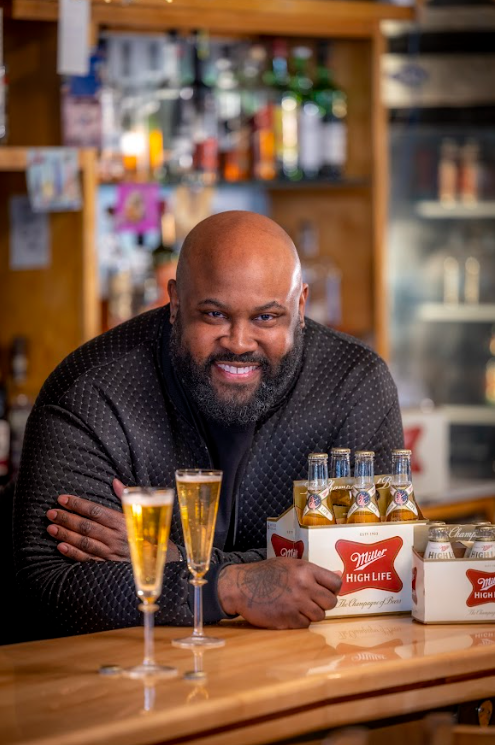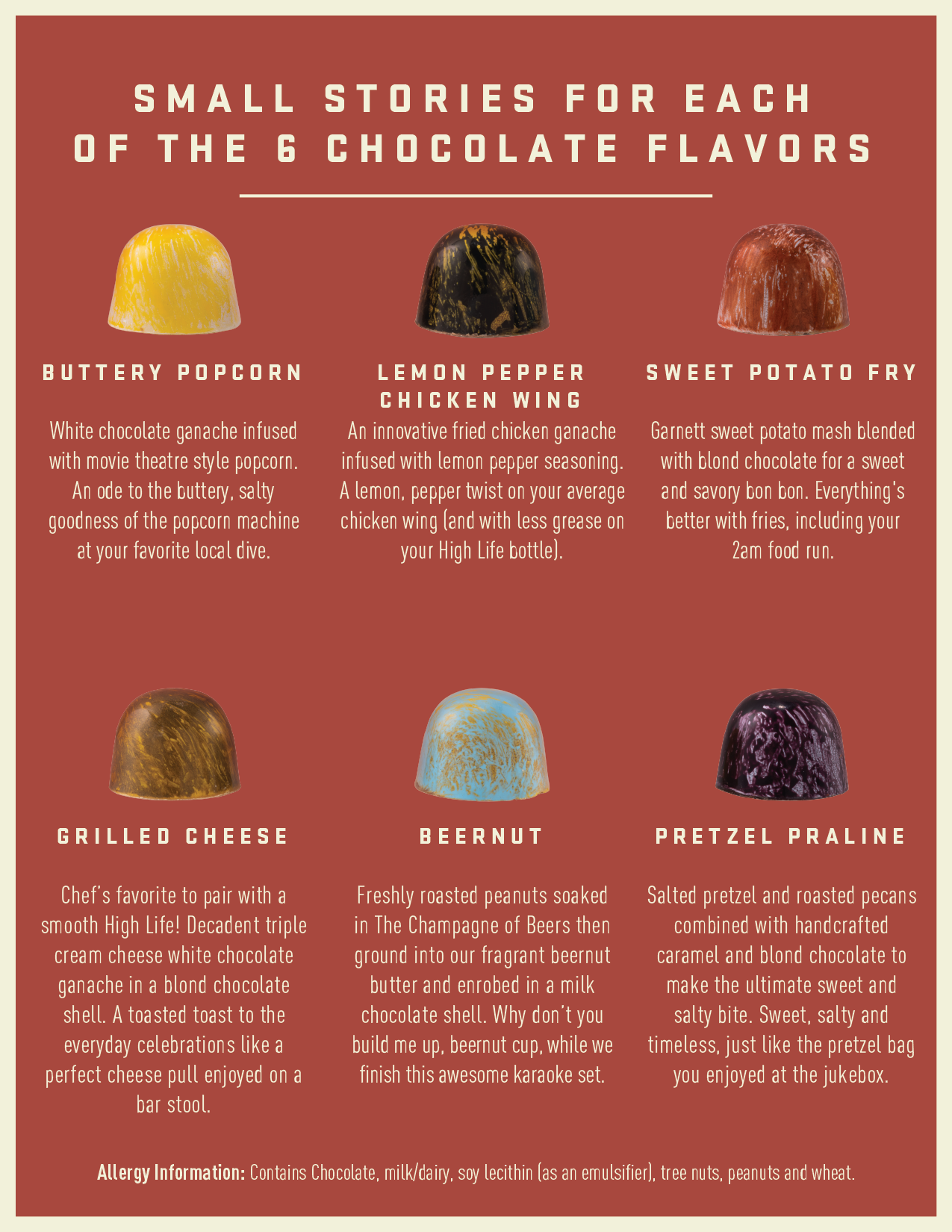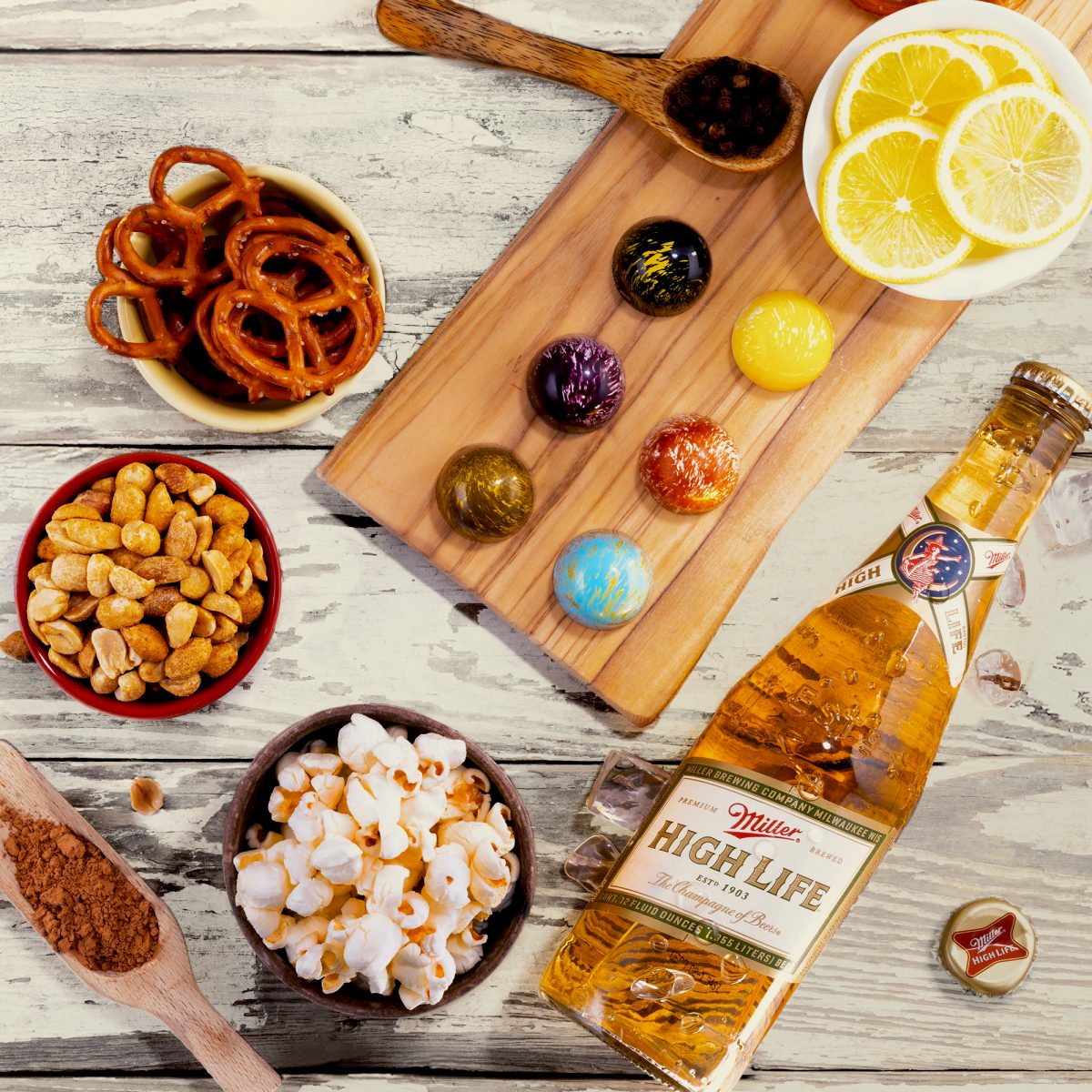Memphians love a good lemon pepper chicken wing. But have they tried lemon-pepper-chicken-wing-flavored … chocolate?
If there’s anyone who can pull it off, it’s Phillip Ashley Rix, owner of Phillip Ashley Chocolates. And a recent partnership with Miller High Life means that Rix will be bringing an intriguing selection of six bar-snack-inspired truffles to Memphis next month.
“Miller reached out to me, and their objective was to create an ode to bar food and bar culture,” says Rix. “The group asked, ‘How do we capture the flavor and sensory experience of being in a dive bar and washing some snacks down with a Miller High Life?’ So I started telling them about how I used to enjoy a grilled cheese and wash it down with a Miller High Life, and the ideas just started flowing from there.”
Starting May 2nd, Phillip Ashley Chocolates will produce 1,000 limited-run boxes of Miller High Life Bar Snack Truffles. No stranger to incorporating fascinating flavors into his creations, Rix will include six different truffle varieties in each box.
“This is our wheelhouse,” he says. “I’ve always sought to do avant-garde-centric flavor profiles. Not for the sake of being sensational, but to create something sensational, to create something that has a great flavor profile, tastes good, and is also something that piques the imagination of the consumer.”

Rix hopes that the creative flavors will make buyers curious about his new styles. The aforementioned grilled cheese and lemon pepper flavors are two of his favorites, but the others cover a broad range of bar snacks. There’s the “beernut,” which is Rix’s take on a peanut butter cup, while he calls the pretzel praline truffle a perfect mix of “sweet and salty.” The buttery popcorn truffle is infused with the flavors of movie-theater-style popcorn, while the sweet potato fry blends a sweet potato mash with blond chocolate.
“The ingredients really live in the chocolate,” says Rix. “With the lemon pepper, we have a cool way of making cracklin out of chicken skin. Then I have a background in chemistry, so we turn it into a format where we can infuse it into the ganache. So you’ll get all the chicken flavor without all the unpleasant texture.
“And we infuse the ‘champagne of beer’ in the truffles as well. It’s a collaborative effort because my goal is to design and deliver a product that Miller will be pleased with, but also to create something that encapsulates my experience with Miller as a consumer of theirs. And the memories I have of enjoying snacks in dive bar with a Miller, maybe munching on some popcorn or sweet potato fries, I synthesize those with my expertise in science and food, and the result is a really fun exercise in two brands coming together.”
Even after the Miller box goes on sale, Rix will continue to push the envelope when it comes to chocolate, as his passion for the craft keeps him eager to unlock new taste combinations. “I’ve always made it a point to be an encyclopedia of flavor, always staying up on trends and then just having ideas in the locker, so that when someone like Miller calls, I have something to work through. I hadn’t done grilled cheese before, but I had incorporated cheeses into my chocolates. And I hadn’t done chicken wings, but I did pioneer a fried chicken chocolate. So they are natural evolutions of the ideas I’ve had before.”
Boxes will be available to order on the Phillip Ashley Chocolates website for $35 starting May 2nd.


